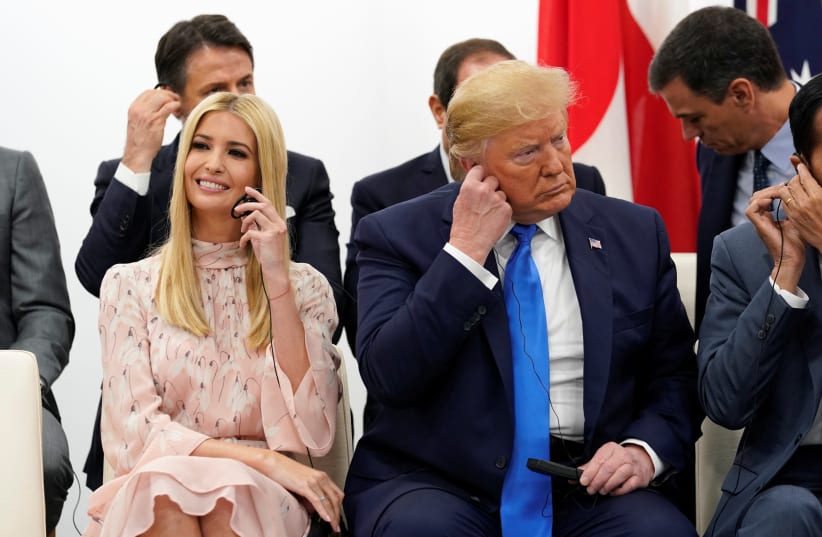Since returning to the US from Tel Aviv at the end of April, I have been inundated by election fever. It seems so much worse this year than in the past. In my city of Los Angeles, the disgust and disdain for all things pertaining to Donald Trump is so strong and pervasive that it has fully colored the political landscape. The only thing that matters to so many people here is to get that guy out of office. Nothing else is relevant.
Accompanying that judgment is another pervasive belief: If Trump had anything to do with one policy or another, it must be wrong, and therefore must be reversed when finally he is gone. Let there be no vestiges of Trump remaining. Truth and righteousness can only be found in direct opposition to Trump, in every sphere and on all policy fronts. The Democratic base adheres to this mantra, and politicians who want their votes necessarily go along.
This group-think was clearly evident at the recent first debate of Democratic presidential candidates. Although it is still more than 18 months until Trump’s replacement can take office, it was not too early to start picking the candidate to run against him. There were 10 applicants for the job arrayed on the stage, all trying to convince the voters that he or she could take Trump down. So when the moderator asked for a show of hands on who would bring the US back into the Iran nuclear deal, I was surprised that only nine hands out of 10 went up.
Of course the outlier, Senator Corey Booker from New Jersey, was asked later what accounted for his departure from the Democratic dogma. His response was that while he supported the deal originally, he thought the president needed some flexibility given present tensions in the Persian Gulf. While that was a reasonable response, I wondered how it went over with the anti-Trump orthodoxy.
To be sure, former vice president Biden was not on the stage for the first debate night. And when the second debate night came along, with 10 different candidates, that question was not asked. The closest statement was that by California Sen. Kamala Harris: “The greatest national security threat to the United States is Donald Trump.” That statement left no doubt as to her views of the president’s foreign policies.
While Biden remains the front-runner in the Democratic Party presidential sweepstakes, Harris, by all accounts, bested him in the second debate. And her positions are conflicted on Israeli issues. On the one hand, a campaign director emphasized, “Support for Israel is central to who she is.” She also spoke at the 2017 and 2018 AIPAC policy conferences.
Her actions as a presidential candidate, however, give one pause: Not only did she skip the most recent AIPAC conference but she also strongly defended a first-term Democratic congresswoman who has been broadly condemned for making antisemitic statements. Furthermore, although Harris has publicly opposed the Boycott, Divestment and Sanctions Movement’s efforts to discredit Israel, she still found reasons not to support bipartisan legislation in the Senate designed to thwart BDS. Whatever her underlying views, she may have been fearful of directly opposing the left-wing Democratic orthodoxy. What is evident is that US support for Israel has increasingly become a more partisan issue.
While Trump’s policies have supported Israeli objectives, from breaking the Iran deal to moving the US Embassy in Israel from Tel Aviv to Jerusalem and supporting the annexation of the Golan, they come at a price. They are made by a singularly unpopular president and could be undone by his successor. Still, Trump’s defeat is not preordained, and he could win reelection in 2020. Indeed, the Democrats’ strong shift leftward might make that outcome more likely. As the pundits emphasize, it is much too early to say.
The writer is a professor of economics at the University of California, Santa Barbara, and UCLA.
